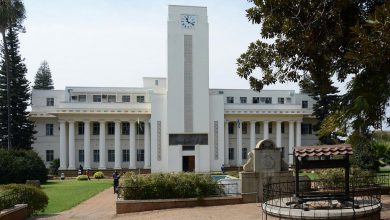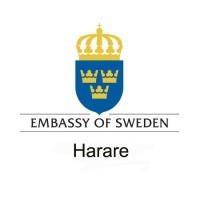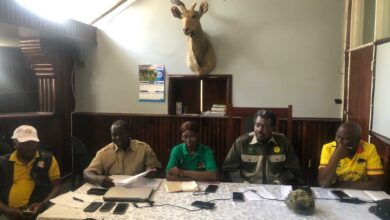Mpilo HIV lab to receive ISO certification
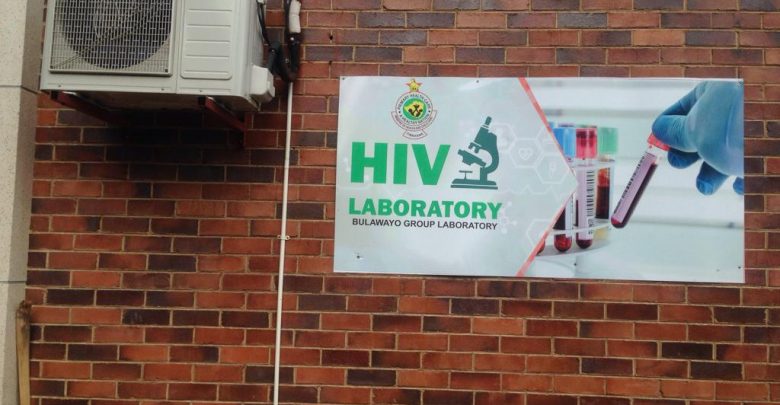
The standard of viral load testing at Mpilo Central in Bulawayo has improved with the institution about to receive its ISO certification, the hospital’s Chief Medical Laboratory Scientist, Abel Waldman, has revealed.
ISO certification for Mpilo will mean that the hospital’s HIV Virology laboratory meets requirements for standardisation and quality assurance and is in line with global trends.
Waldman made this announcement during a Monday tour of Mpilo laboratory by US Embassy, Deputy Chief of Mission, Thomas Hastings, to understand viral load testing services, and their role within the Ministry of Health and Child Care’s progress towards HIV epidemic control.
The Mpilo laboratory is one of thirteen viral load testing laboratories supported by the United States through Centers for Disease Control and Prevention (CDC) and the President’s Emergency Plan for AIDS Relief (PEPFAR).
“We have been doing the largest number of Viral Load tests in the country. Our average monthly production has been an excess of 12 000. While doing so we have also working to improve the quality of our work.
“With this we are glad to say that also with your support the standard of our viral load testing has improved to the extent that we are about to be ISO certified. This was but a dream in the past years. However, with your support it is about to become a reality,” Waldman said.
The chief medical lab scientist noted that ISO certification gave assurance to people needing Viral Load testing that the laboratory was not just producing high numbers of tests but was meeting international standards.
“It has been stimulating working with the support of PEPFAR through CDC and Association of Public Health Laboratories (APHL) and now BRITI to provide much needed up scaled testing of viral load for people living with HIV.
“We are grateful for your support for the testing facilities, IT support and also the motorcycle riders programme support for specimen collection and delivery of reports,” Waldman noted.
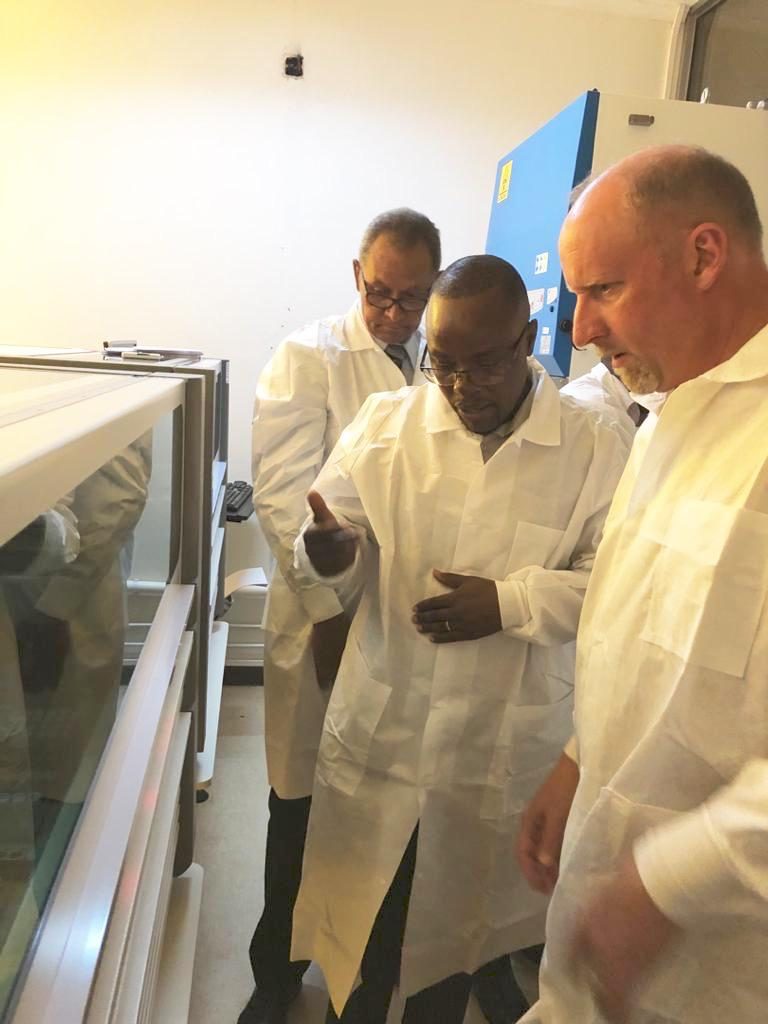
(right) listening to Programme Director for Laboratory Services at
Mpilo Central Hospital, Levi Vere during a tour of the facilities.
Standing in the background is Mpilo’s Chief Medical Laboratory
Scientist, Abel Waldman.
After touring the virology laboratory, the US diplomat, said it was ‘very’ interesting to see a combination of low and high technology.
“After a person knows they have HIV and are on treatment, they have to be tested to see that the virus is suppressed. That’s the final part of the treatment to make sure it has been effective and those tests have to come to the laboratory for high testing and see if the virus indeed is suppressed and treatment is effective,” Hastings said.
He also expressed satisfaction on the ISO certification saying it “indicates that at the highest level of global standards the laboratory is meeting those standards for the international certification system for safety, proper procedures and record keeping.
“This lab here at Mpilo is meeting those standards or will be meeting them very soon, which is a real accomplishment for this hospital and facility.”
The US deputy chief of mission added it was pleasing to witness the high technology that conducts the tests and the system of communication linking all the clinics.
“The lab sends people out on motorcycles to pick up the samples and return the information after tests are complete to make sure the entire area is covered. This will enable all Zimbabweans an ability to receive treatment and information on the effectiveness of that treatment,” Hastings said.
Hastings said viral load monitoring was a key part of the US support in the fight against HIV in Zimbabwe.
“People ask me how the US$160 million for fighting HIV from the US goes to and this is one part of that. In 2019, we contributed US$8.7 million specific for the laboratory efforts. Part of that goes to our partner, the Medical Research and Training Institute, which conducts a lot of training and operations.
“Some of the money also goes to the equipment, which is essential in running these machines these are very specific ways in which we are supporting the fight against HIV and AIDS in Zimbabwe,” he said.
The US diplomat noted that from his tour of health centres, he had taken note of the various challenges.
“For the facility here, the challenge is how software is slow and slows down the testing process and in other areas, the challenge was of a ceiling falling down. But I am impressed how everyone, from Americans to Zimbabweans to partners and the government here. We are problem solvers trying to tackle these challenges,” Hastings said.
HIV viral suppression is critical for saving individual lives and precluding further transmission to others.
Viral load testing encompasses functioning sample referral networks, data systems, and laboratory quality control and improvement mechanisms.


